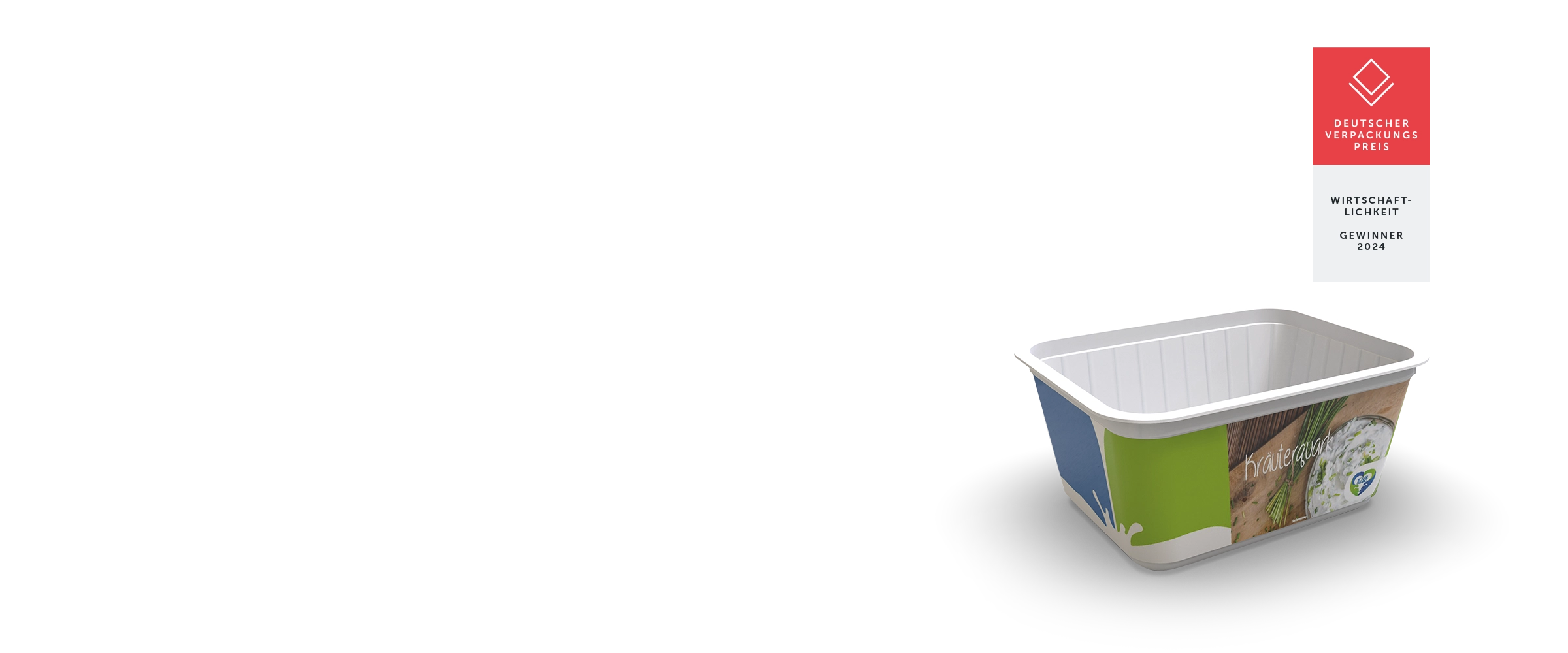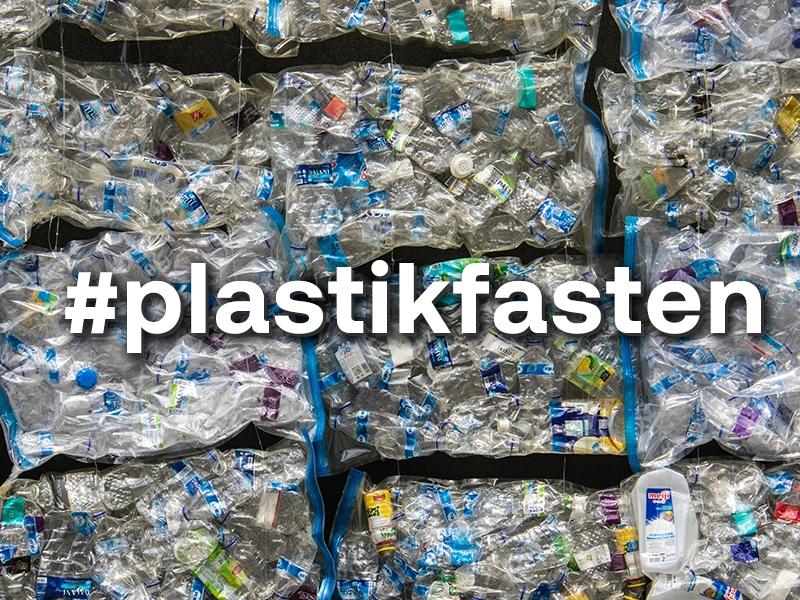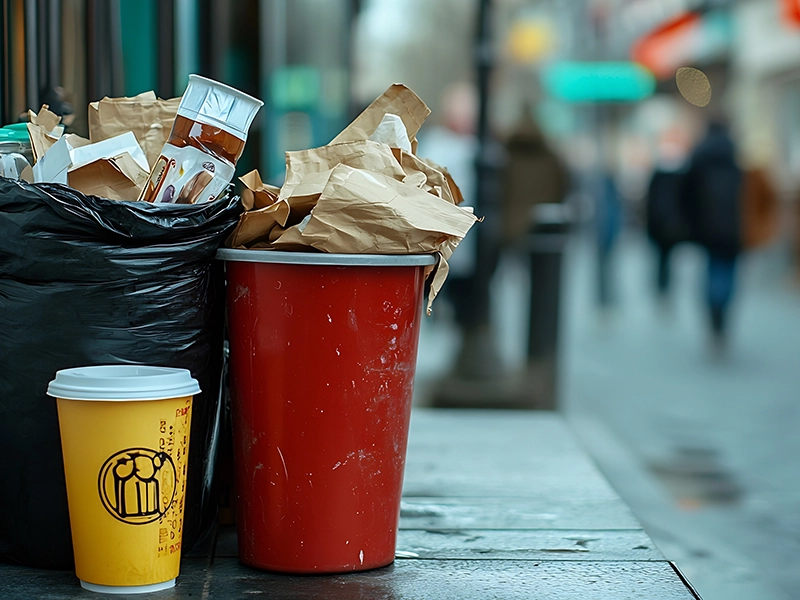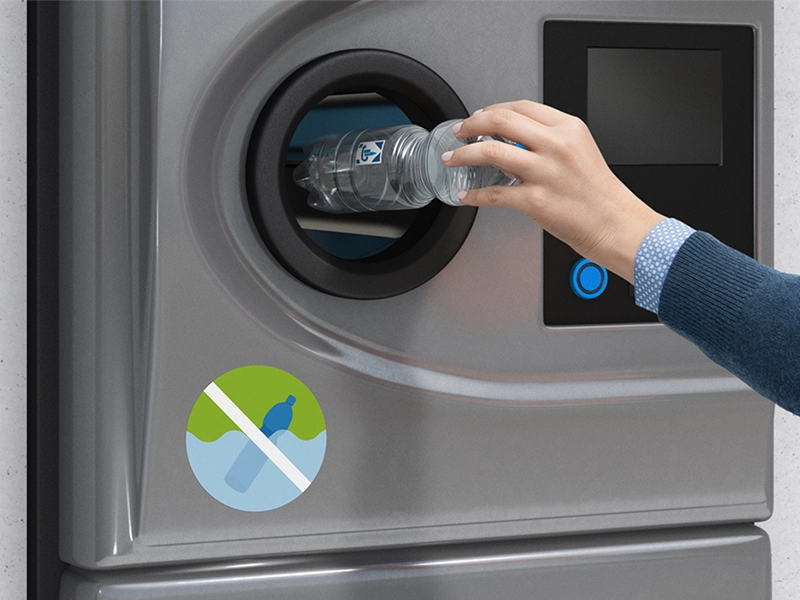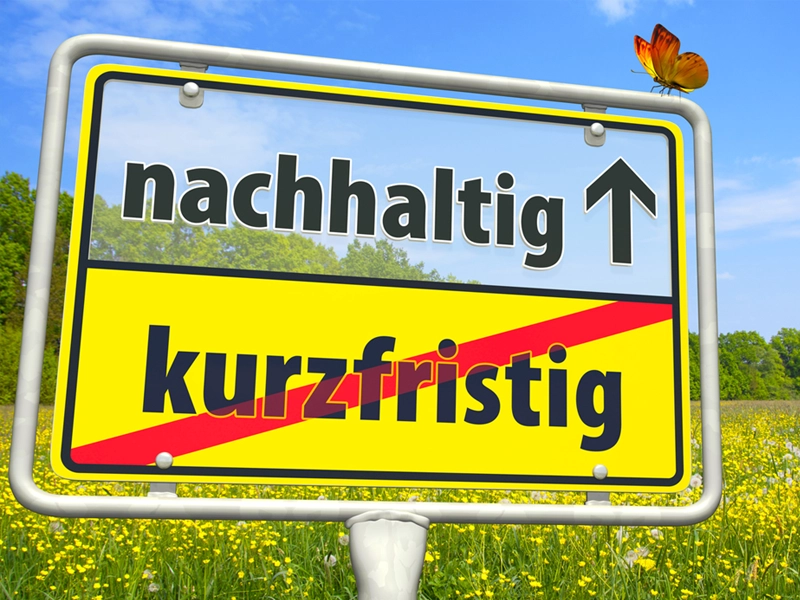„The collaboration with Pöppelmann has intensified in recent years in particular, which has also led to both companies developing an understanding of each other's requirements. One of the results of this good cooperation is our new herb quark cup, on which numerous departments at DMK and Pöppelmann have worked together.
Henning Götsche, Packaging Development of the DMK Group's Private Label business unit
Small cup, big impact:
a project to conserve resources.
Less material usage, lower weight, optimized logistics: the reworking of a private label tub for herbal quark proves that even established packaging solutions offer potential for optimization. With the redesign of the cup, a joint project between the DMK Group and the packaging manufacturer Pöppelmann FAMAC®, significant resource savings can now be achieved, contributing to greater climate protection.
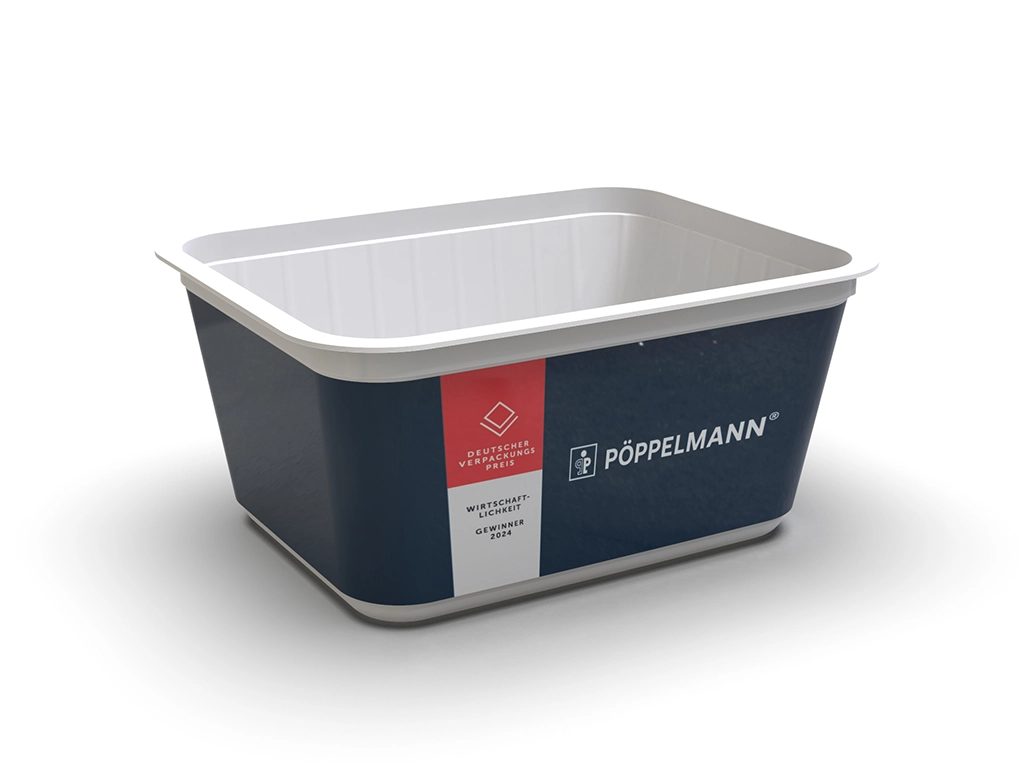
Two companies, one common goal - more resource conservation
The joint project proves that there is certainly room for optimization even with long-standing, established packaging solutions such as the classic quark pot. DMK took the first step some time ago by dispensing with the conventional snap-on lids on tubs for selected quark products. This has already saved considerable amounts of plastic. In a recent project, the dairy products manufacturer went one step further. The aim was to also optimize the injection-moulded cup in terms of material usage in order to save even more plastic.
That's what an enthusiastic customer sounds like.
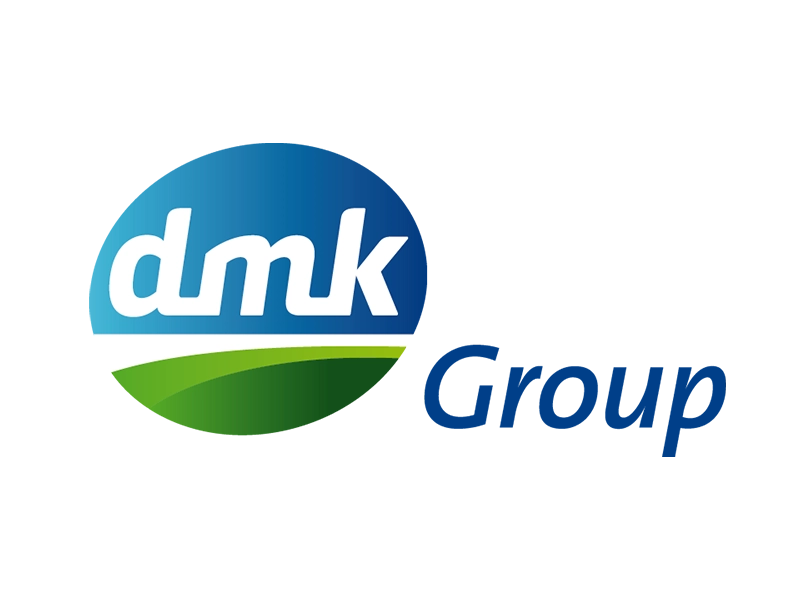
Reducing costs and greenhouse gas emissions with an innovative packaging design.
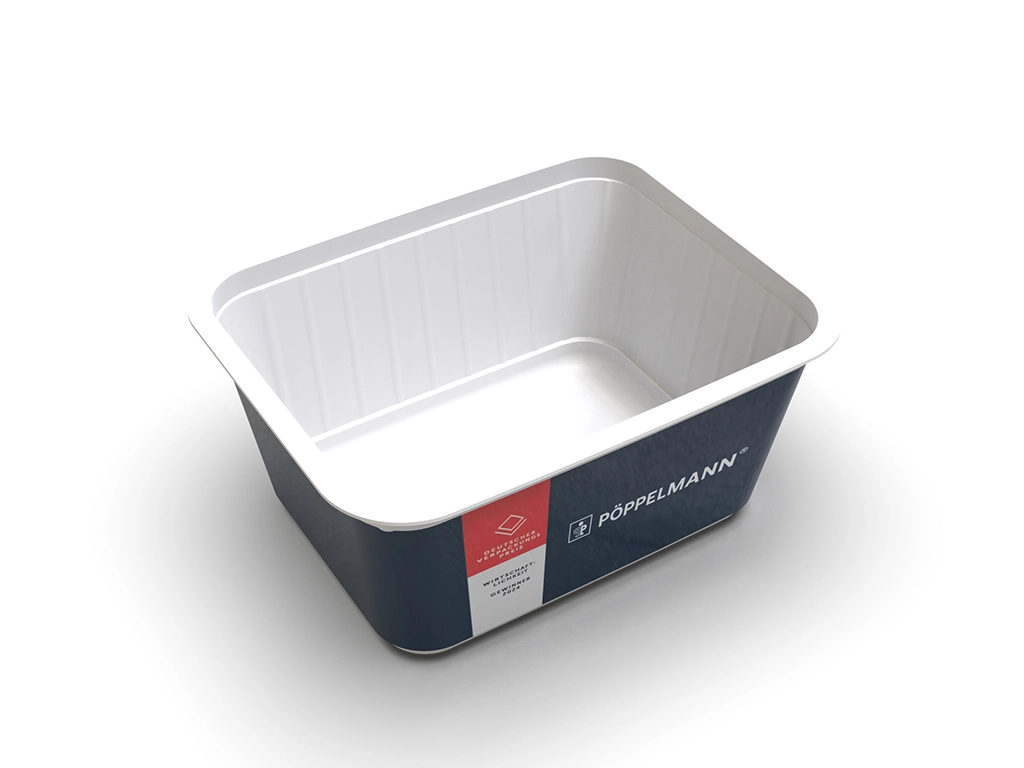
Weight reduction through reinforced longitudinal ribs: the reduction in material has reduced GHG emissions by approximately 20 percent: (18.4 instead of 23.09 kg CO2eq/1,000 cups)
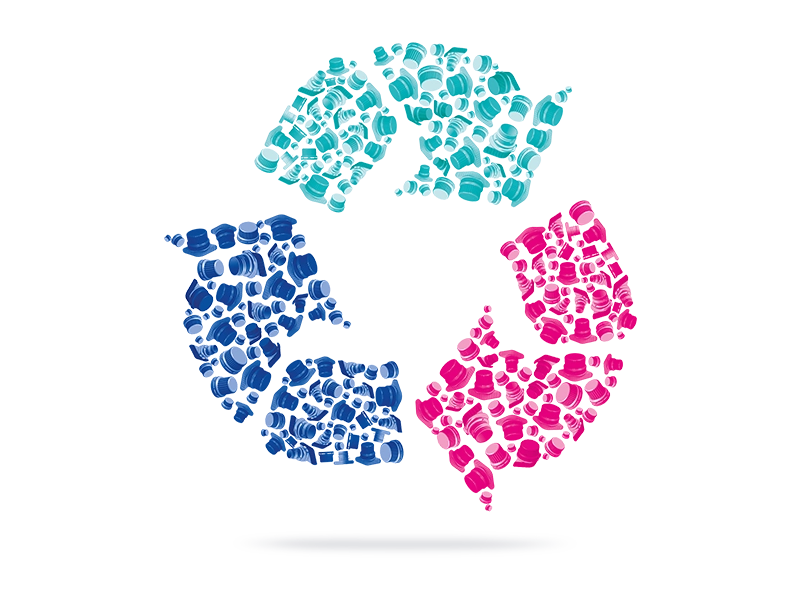
Recyclability
In the In-Mould-Labeling process, the container is provided with a pre-printed plastic label during manufacture. The container and label are made from the same base material, which means that the packaging can be recycled without any problems.

Nestability
The design adjustment made it possible to reduce stack spacing and cup height. This in turn reduces storage space requirements and the number of transports from the packaging manufacturer to the filler. Instead of 8,736, 13,440 cups now fit into a transport box. This reduces the annual requirement for transport packaging for unfilled cups by around 50 percent. It also leads to improvements in the filling process (50% more cups in the magazine reduce the effort required in production).
Sustainable packaging.
Added value along the
value chain.

marco von Döllen
Sales Manager
- Single-material packaging: ideal for mechanical recycling (NIR detection, float-sink process).
- Resource-saving thanks to material reductions and optimal stackability and nestability.
- Quickly and cost-effectively create design, functional, and test samples with rapid prototyping and tooling.
We would be happy to present our advantages to you in a personal meeting.
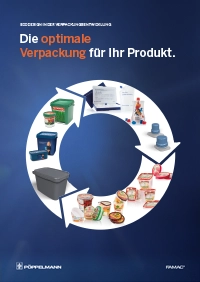
Product Folder
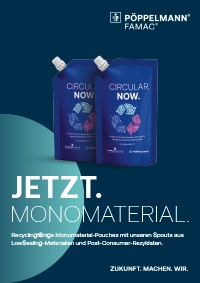
Spout Folder
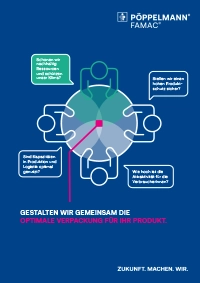
PP blue Folder
What do we mean by
future-proof packaging?
The EU Packaging & Packaging Waste Regulation (PPWR) sets out the framework conditions for how packaging should be designed in the future. Unnecessary packaging and packaging waste should be reduced and reusable systems and recycling should be promoted. In our opinion, plastic packaging meets precisely these requirements, as plastic is more efficient than alternative materials.
Test without obligation: reusable cups from the FAMAC® program.
Request samples of our packaging for testing - of course, completely free of charge and without obligation.
Fill out the form now and receive a sample range.
